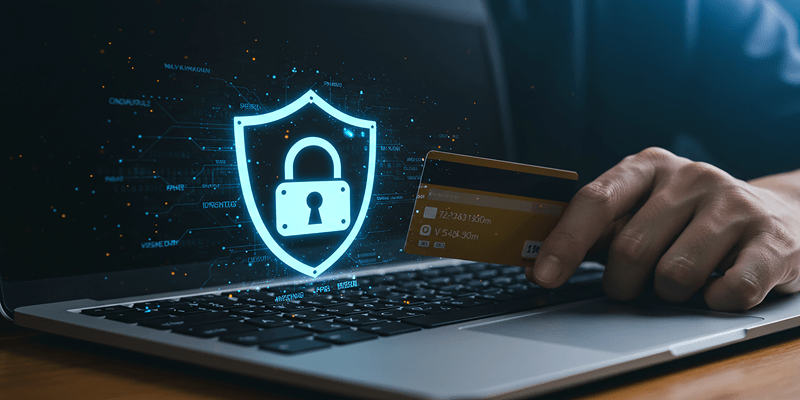
If you are credit invisible or if your past credit mistakes have lowered your score, secured credit cards might be the solution that can give you a new start. These cards are made especially for people who want to build or rebuild their credit in a secure way while at the same time learn to spend responsibly. By having a refundable deposit and credit reporting on a regular basis, these cards are the tools that make it possible to gradually regain lenders’ trust.
How secured cards operate, their benefits, and the reason why they are usually the most excellent option for regaining your financial footing – let us explore these points one by one.
Secured credit cards are almost the same as regular credit cards in terms of functionality, with a significant difference — they necessitate a refundable security deposit. This deposit is the collateral for the lending institution and, in most cases, becomes your credit limit. So if you put down a $300 deposit, your credit limit will most probably be $300.
Since the deposit limits the lender's risk, the bank will give you a green light without much trouble, even if you have a poor credit score or, from the looks of it, no credit at all. Credit reporting agencies (Experian, Equifax, and TransUnion) receive your payment information each month, thus making you visible to them as a good payer.
The holders of these credit cards are those who:
Eventually, consistent use and payment on or before the due date may result in your secured card being converted into an unsecured one.
It is not difficult to comprehend how secured cards work once the essential points are understood. You fill in an application form for a card, along with a cash deposit; then you are free to use it as any other credit card. Generally, the deposit is returned to the cardholder when he/she terminate the account or upgrade it after a good payment record is made.
It typically goes like this:
Period after period, using it in a responsible way will be evidence of your being a credible borrower and will make it easier to access better financial offers.

In the instance where your credit score is at a low level, a refusal to issue you a regular credit card is highly probable. That is why most of the users of credit are in search of what the best secured cards for bad credit can offer. The chosen alternatives are tailored to extend to you a restart with no exorbitant charges or an impassable wall of conditions.
Some of the best secured credit cards for bad credit offer the following benefits:
Comparing a few of the cards is the thing you should do before filling out an application. What you have to check is whether the one that suits you has a straightforward contract, no secret fees, and a progress review between six and twelve months of proper use of the card.
A typical question from first-time users is the difference between the two credit cards. Although both can be used the same way for purchasing, they are different in terms of issuance and qualification of the holder.
They have to be secured by a refundable deposit. They are aimed at those who have no credit or a bad credit history. Usually, your limit is equal to your deposit, and your activity will be made known to the credit bureaus.
They are free of any deposit requirement. Your approval and credit limit will depend on your credit score and financial background. Unsecured cards may come with attractive features such as rewards and higher limits, but it can be difficult to get them.
The core message: first, secured credit cards allow you to demonstrate that you are trustworthy. When your credit gets better, you will be able to get an unsecured card that has more benefits and does not require a deposit.
It is secured cards that can help you create a good credit record with which the real power lies in their consistent and responsible use. Every time you pay on time and thus positive information will be added to your credit report which will, in turn, gradually increase your credit score.
In order to get the most out of your card, you need to observe these simple rules:
Consistently practicing those habits for a period of six months or even longer should bring you credit score increases and give you a chance to be accepted for better financial products.
Part of what makes secured credit cards different from other kinds is that they are refundable deposit cards. The deposit is not a charge - it is your money that is being kept as security. Whenever you show your trustworthiness or close your account in the right way, you will get your deposit back.
For example, you deposit $500 and pay your bills regularly; after a few months, the issuer may decide to give you an unsecured card and send your deposit back. Some banks even provide an option for automatic reviews to facilitate a quicker transition.
Don’t think of the deposit as money that you have to pay; think of it as money that helps you get to where you want to be. It allows you to continue with your financial future when most other institutions will refuse you.
Secured credit cards are among the most potent instruments for those who want to establish or reestablish their credit. They allow you to prove your good financial habits while having the comfort of a regular credit card.
With good credit habits and patience, these credit cards can become your triumph story, showing that credit rebuilding is not only doable — it is very close at hand.
This content was created by AI